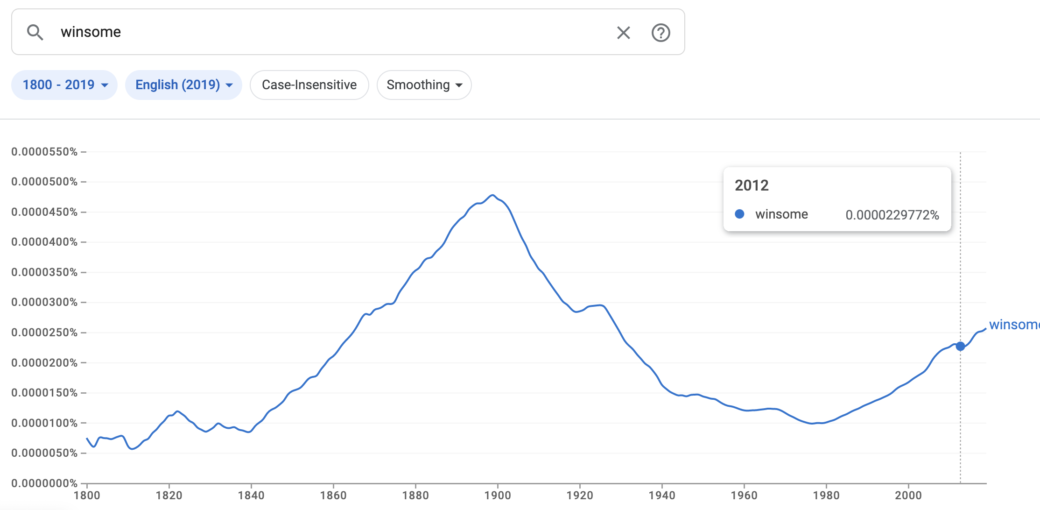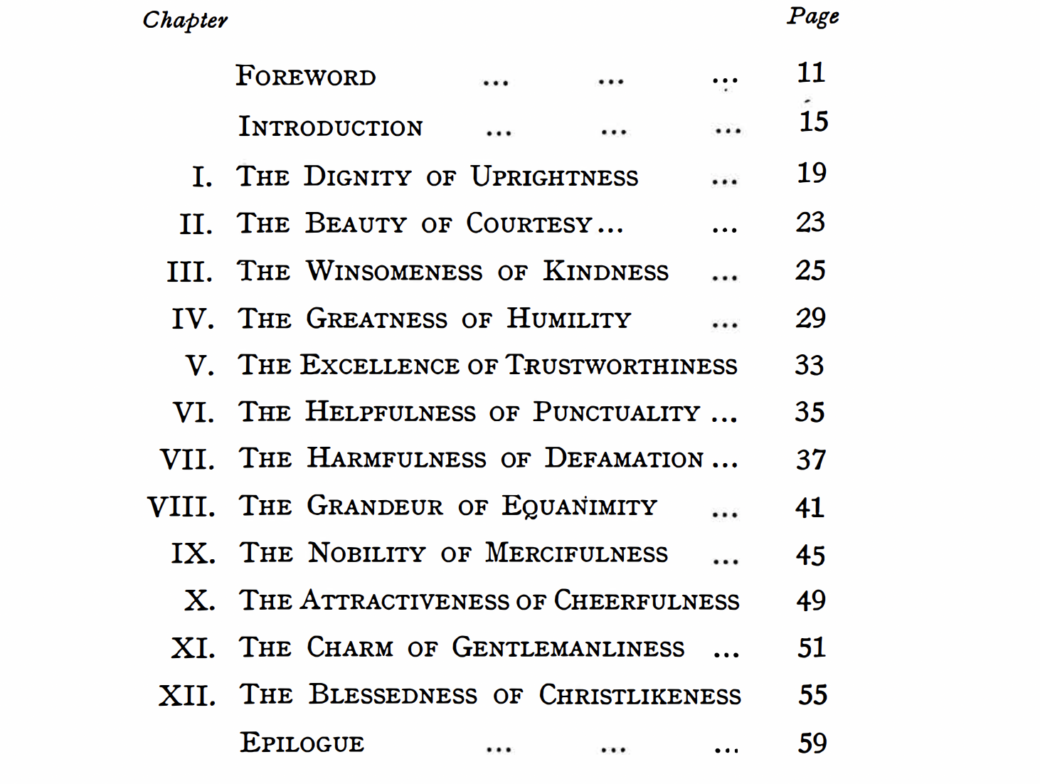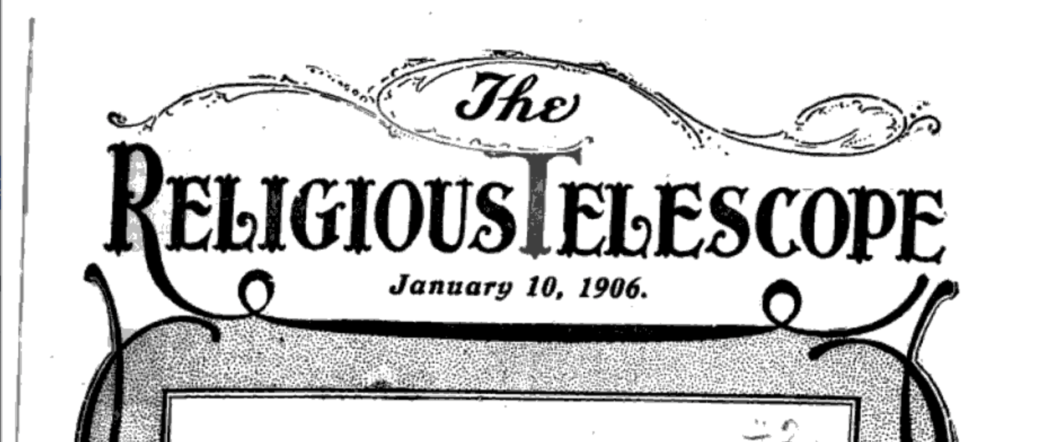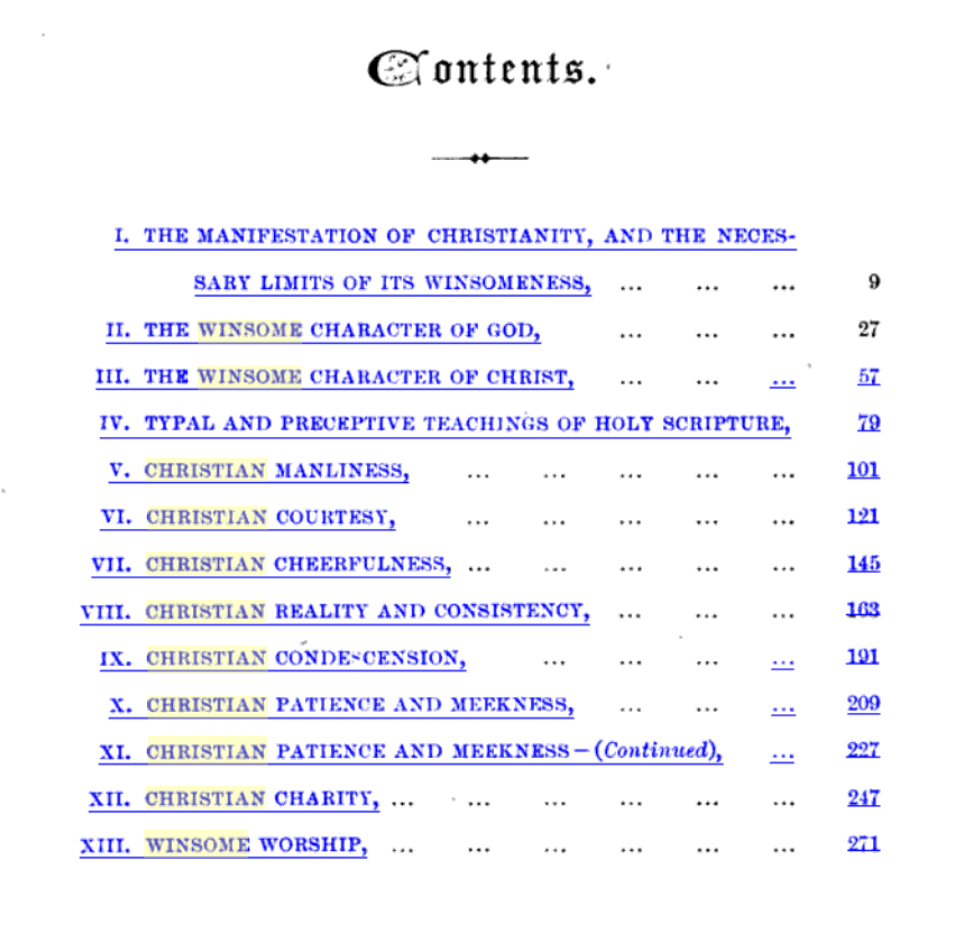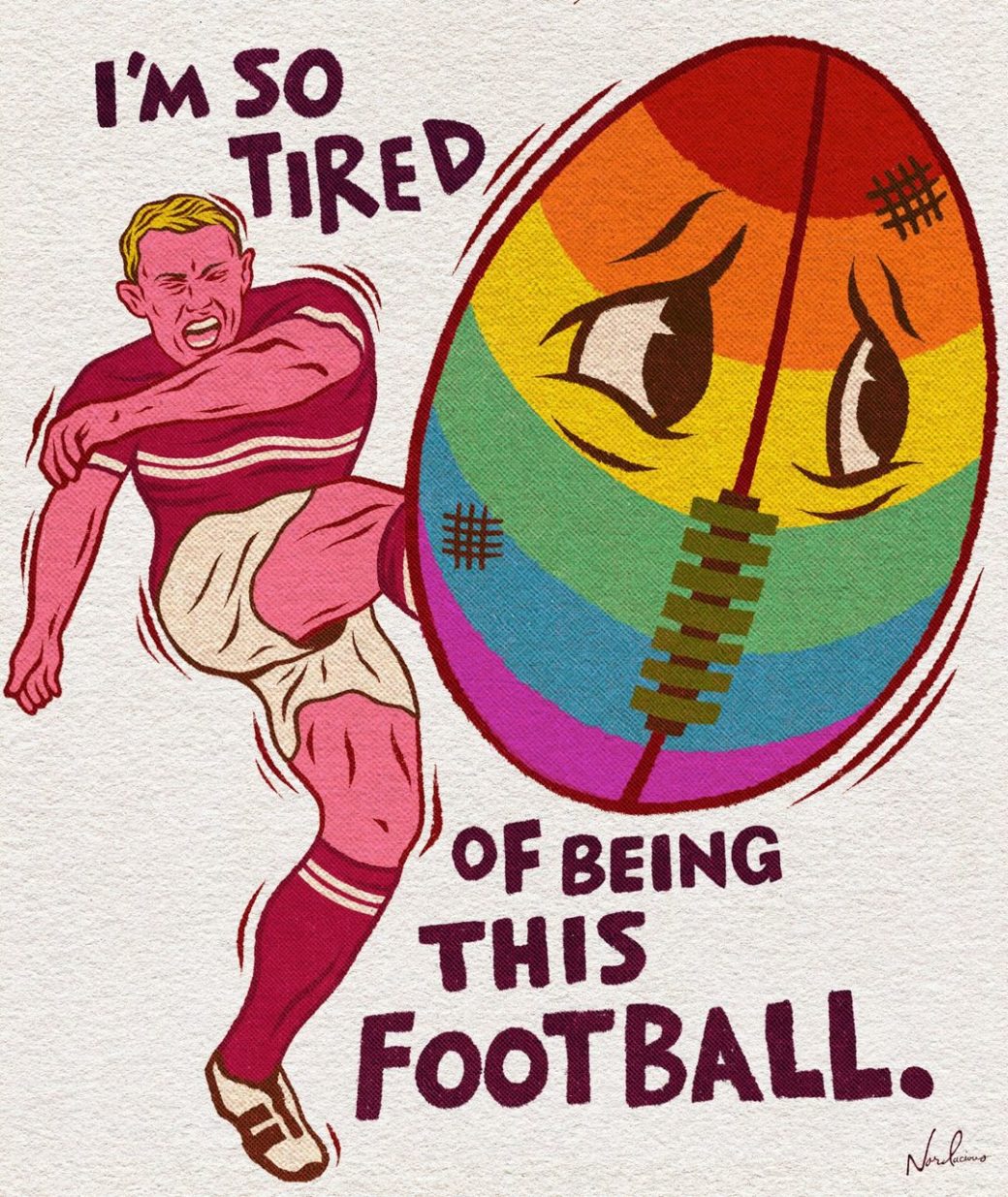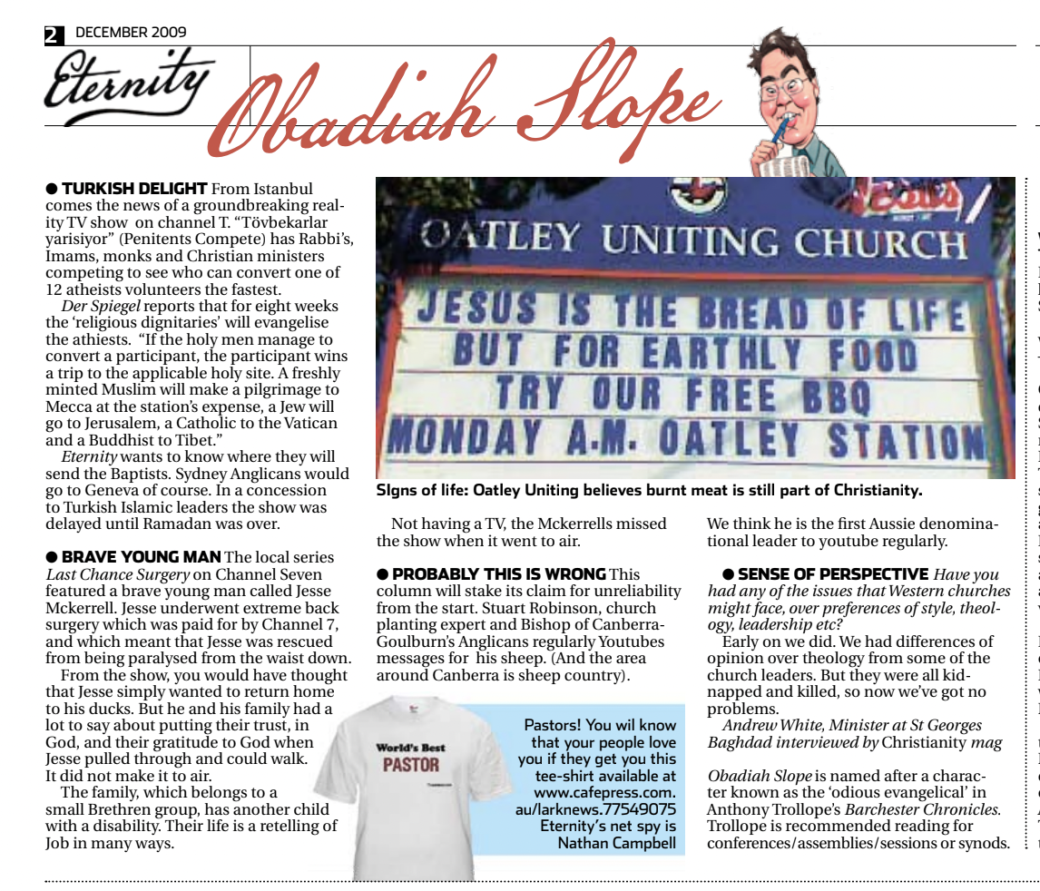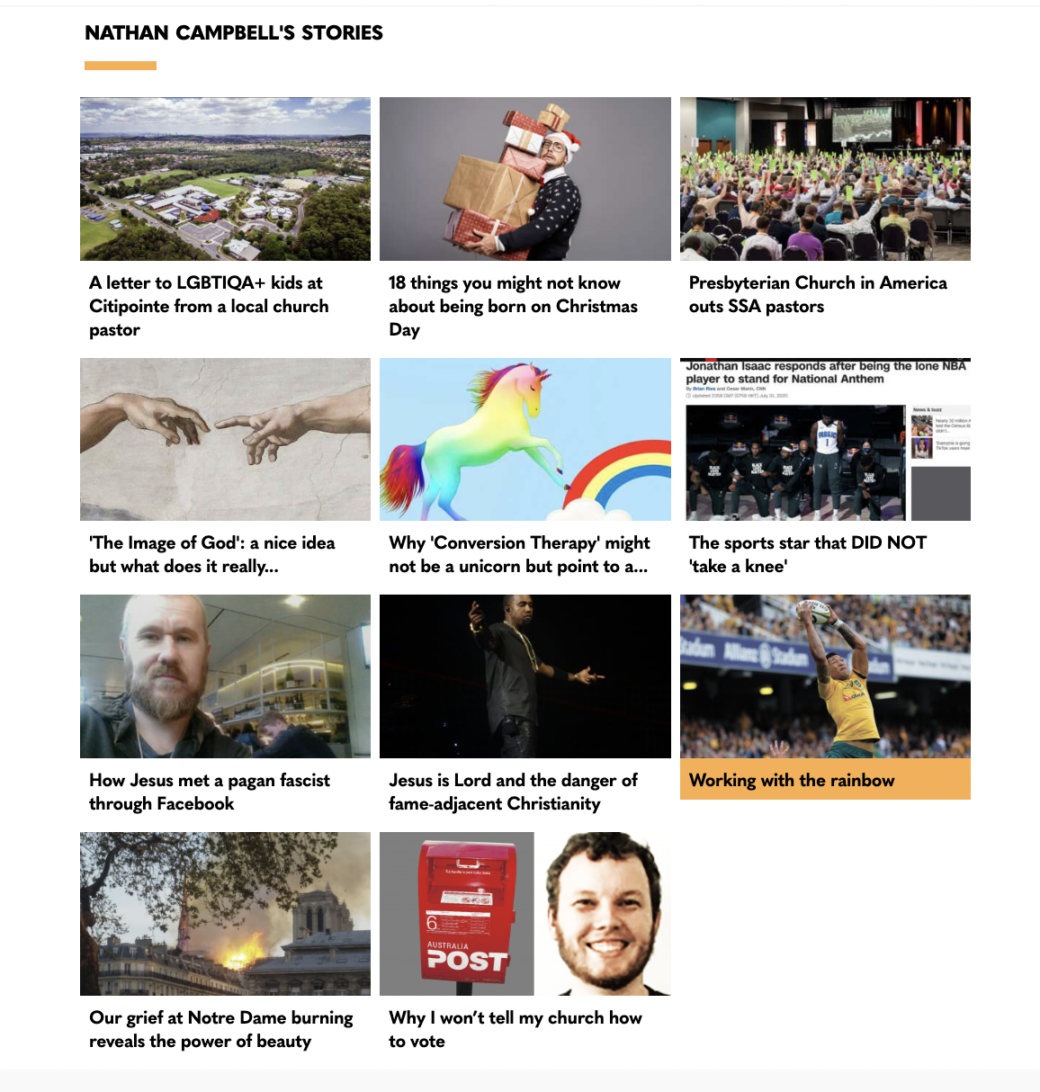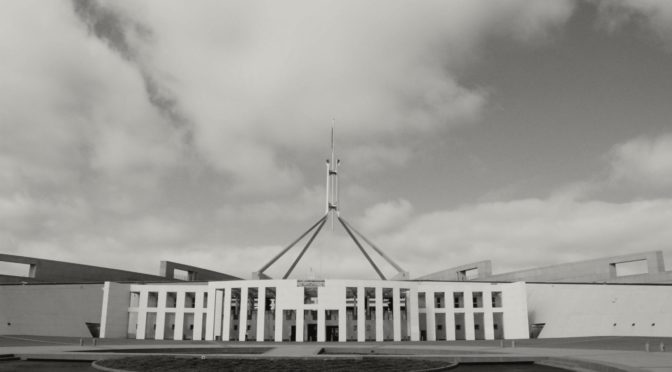One of my criticisms of the current approach to church, particularly church growth, in the scenes I’m part of is that it ends up being a little machine like — leadership guides (in the forms of blogs, podcasts, and conferences) all seem to be embedded in our technological society — the world of technology and technique described by the philosopher Jacques Ellul back in the 1950s. If this technological society is part of what disenchants, and so, secularises, then, well, ChatGPT reckons there are some risks:
“The church’s use of technology could lead to feelings of disenchantment among some members, particularly those who prefer a more traditional or immersive worship experience. This could lead to a decline in attendance and participation, and ultimately, a decline in the church’s growth.
There is also a possibility that the church’s embrace of technology can lead to a sense of disconnection, superficial engagement and shallow understanding of the faith, this could lead to a lack of commitment and meaningful engagement with the faith, which could be reflected in the lack of growth or even decline of the church.”
ChatGPT is a reasonably recent machine learning, or AI, large language model. It’s a clever piece of technology — and you can find all sorts of church leadership types opining on how to use the technology (and tweeting about ways to unlock its power, or how you ‘just aren’t using it right’ without their help) if you browse Twitter. One of the fun features of ChatGPT that can “unlock its power” is that within a conversation you can refine results by asking it more questions, and you can assign it a persona that it will attempt to create on the basis of its ‘learning.’ People disappointed with the results it produces might not have really pushed into this feature of the tool. ChatGPT develops original content in the same way Hollywood does (or in the same way any artist does, really), it remixes and borrows and creates a derivative pastiche using the language, imagery, colours, metaphors and other elements of written communication available to it. This means when you ask ChatGPT to engage in a conversation as a church leadership guru, its advice is not novel, it is, in fact, derived from the countless words of leadership advice already uploaded to the machine (or the cloud).
What happens then, if you ask ChatGPT to function as a consultant for a new church plant in modern Australia? What vision for church does it offer? Well. Let me introduce you to Radiance Church. A church for Australia’s future imagined by the machine. I asked ChatGPT to answer my questions using the personality of a church leadership guru. ChatGPT’s summary of its adopted persona is:
“My focus is on practical and effective strategies for building and growing a church community that is well equipped to thrive in a modern world. I will emphasize the importance of technology and innovation in building a vibrant and relevant church community that is able to connect with people in the community.”
In the next couple of posts I’ll be building a sort of ‘proof of concept’ use of this technology, and using it to generate a vision of how churches might adapt to our changing world and these emerging technologies, then I’ll be using this exercise to critique not just the use of this technology to produce some fairly easy and amazing results with minimal effort, but the church system/culture this technological miracle emerges from… the learned responses of the machine reveal something about the machinery of the modern church.
It turns out it’s fairly easy for ChatGPT to produce ‘church in a box’ (whether its a good church, or just something generically ‘vibrant’ is kinda the point). Everything in italics in this post was produced by ChatGPT in response to the questions from me.
Church Names
Me: give me ten different one word names with Bible references in a rationale for the name.
GPT Church Guru:
“Empower” Church – based on Ephesians 3:20, which says “Now to him who is able to do immeasurably more than all we ask or imagine, according to his power that is at work within us.” The name “Empower” Church emphasizes the idea that God’s power is at work within us, giving us the ability to do great things in His name.
“Resurrection” Church – based on Romans 6:4, which says “We were therefore buried with him through baptism into death in order that, just as Christ was raised from the dead through the glory of the Father, we too may live a new life.” The name “Resurrection” Church emphasizes the idea of a new life through Jesus Christ, symbolizing the resurrection of Jesus and the new life that believers receive through faith in Him.
“Radiance” Church – based on 2 Corinthians 4:6, which says “For God, who said, “Let light shine out of darkness,” made his light shine in our hearts to give us the light of the knowledge of God’s glory displayed in the face of Christ.” The name “Radiance” Church emphasizes the idea of the light of Christ shining in our hearts, illuminating our path and guiding us to the glory of God.
“Hope” Church – based on Romans 15:13, which says “May the God of hope fill you with all joy and peace as you trust in him, so that you may overflow with hope by the power of the Holy Spirit.” The name “Hope” Church emphasizes the idea that through faith in God, we can have hope and joy, even in difficult times.
“Victory” Church – based on 1 Corinthians 15:57, which says “But thanks be to God! He gives us the victory through our Lord Jesus Christ.” The name “Victory” Church emphasizes the idea that through Jesus Christ, we have victory over sin and death, and ultimately eternal life.
“Redeemer” Church – based on Isaiah 43:3, which says “For I am the Lord your God, the Holy One of Israel, your Savior.” The name “Redeemer” Church emphasizes the idea of God as our savior who redeems us from our sins through Jesus Christ.
“Exalt” Church – based on Psalm 34:3, which says “Glorify the Lord with me; let us exalt his name together.” The name “Exalt” Church emphasizes the idea of exalting and glorifying God’s name, through worship and praise.
“Blessed” Church – based on Matthew 5:3, which says “Blessed are the poor in spirit, for theirs is the kingdom of heaven.” The name “Blessed” Church emphasizes the idea of being blessed by God, through faith in Jesus Christ and living a life of righteousness.
“Eternity” Church – based on John 3:16, which says “For God so loved the world that he gave his one and only Son, that whoever believes in him shall not perish but have eternal life.” The name “Eternity” Church emphasizes the idea of eternal life through faith in Jesus Christ, and the eternal nature of God’s love for us.
“Salvation” Church – based on Romans 10:9, which says “If you confess with your mouth, “Jesus is Lord,” and believe in your heart that God raised him from the dead, you will be saved.” The name “Salvation” Church emphasizes the idea of salvation through faith in Jesus Christ.
Mission, Vision, Values
Me: Write me a mission statement, a dynamic vision statement, and a set of values for Radiance Church.
GPTGuru:
Mission Statement:
“Radiance Church exists to glorify God by shining the light of Jesus Christ in our hearts and sharing it with the world through worship, fellowship, and service.”
Vision Statement:
“To be a vibrant and growing community of believers, passionate about sharing the love and hope of Jesus Christ with all people, and to empower them to live a life of purpose and fulfillment, in the light of God’s glory.”
Values:
Worship: We value the importance of worshiping God in spirit and truth, and to exalt his name together. (John 4:23-24)
Fellowship: We value the importance of building meaningful relationships with one another, through fellowship and support. (Acts 2:42-47)
Service: We value the importance of serving others, through acts of kindness and compassion. (Matthew 25:40)
Discipleship: We value the importance of making and multiplying disciples, by teaching and mentoring others in the ways of Christ. (Matthew 28:19-20)
Holiness: We value the importance of living a life of holiness, and to be a shining example of righteousness. (1 Peter 1:15-16)
Evangelism: We value the importance of sharing the Good News of Jesus Christ with others, and to make Jesus known to the world. (Matthew 28:18-20)
Prayer: We value the importance of prayer, and to make it a central part of our daily lives. (1 Thessalonians 5:16-18)
Stewardship: We value the importance of managing our resources, time, and talents for the glory of God. (Matthew 25:14-30)
Unity: We value the importance of unity and to maintain the unity of the Spirit, in the bond of peace. (Ephesians 4:3)
Growth: We value the importance of personal and spiritual growth, and to be transformed into the image of Christ. (2 Corinthians 3:18)
A church for the modern age needs a visual/branding guide, and ChatGPT is here to handle all your creative needs.
Me: Write me a style and brand guide for Radiance church, including colour scheme, description of branding elements, voice and style of copy writing.
GPTGuru:
Style and Brand Guide for Radiance Church
Colour Scheme:
Primary: Gold #FDB813
Secondary: Dark blue #1B1C20
Accent: Light blue #B5E3F4
The primary color of Radiance Church is gold, representing the light and glory of God. The secondary color is a dark blue, representing the steadfastness and stability of God. The accent color is a light blue, representing the hope and peace of God.
Branding Elements:
Logo:
The logo for Radiance Church features a stylized depiction of a lightbulb, with the word “Radiance” written in a bold and modern font. The lightbulb represents the light of Jesus Christ shining in our hearts, and the word “Radiance” represents the glory of God.
Typography:
The primary font for Radiance Church is “Montserrat”, a modern and clean sans-serif font. The secondary font is “Open Sans”, a friendly and approachable font.
Photography and Imagery:
The photography and imagery used in Radiance Church should be bright, positive, and inspiring. They should depict people of all ages and backgrounds, and should reflect the diversity of the community.
Voice and Style of Copy Writing:
- The tone of voice should be positive, uplifting, and friendly.
- The language should be inclusive and welcoming to all.
- The copy should be clear, concise, and easy to understand.
- Use of biblical references, metaphors, and storytelling are encouraged to communicate the message of the church in a relatable and engaging way.
- Use of humor, anecdotes and personal stories are encouraged, to make the message more relatable and engaging.
- Overall, the style and brand of Radiance Church should reflect the positivity, hope, and light of Jesus Christ, and should be inviting and accessible to all. The branding should align with the mission and values of the church, and should be easily recognizable and memorable to the community.
Me: Write me an image use guide for radiance church publications and marketing, including reference to lighting.
GPTGuru:
Image Use Guide for Radiance Church Publications and Marketing
- Lighting: Lighting is an important aspect of imagery used in Radiance Church publications and marketing. Images should be well-lit and bright, to reflect the light and glory of God. Avoid using images that are dark or shadowy, as they do not align with the message of the church.
- Composition: Images should be composed in a way that is visually appealing and easy to understand. The subject of the image should be clearly visible and the background should not be too busy or distracting.
- People: Images of people should be used in Radiance Church publications and marketing, as they help to create a sense of community and belonging. People of all ages, genders, and ethnicities should be represented in images, to reflect the diversity of the community.
- Action: Images should depict people engaging in activities, such as worship, fellowship, or service, as they reflect the mission and values of the church.
- Branding: All images used in Radiance Church publications and marketing should include the Radiance Church logo and/or website address.
- Photography: All images used in Radiance Church publications and marketing should be high-resolution and professional-quality photographs. Stock photos are allowed but it is encouraged to use original photographs if possible.
- File types: All images should be in JPEG or PNG format.
- Attribution: If using stock images or images from other sources, ensure that they are properly credited and have the necessary permissions.
- Avoid: Avoid using images that depict violence, drug or alcohol use, or any other subject matter that is not appropriate for a church setting.
In summary, the imagery used in Radiance Church publications and marketing should be bright, positive, and inspiring, and should align with the mission and values of the church. They should depict people of all ages and backgrounds, and should reflect the light, glory and diversity of God. The images should be composed in a visually appealing way, and should include the Radiance Church logo and/or website address.
Web Design and Development
Me: Write me website copy for the home page with a compelling description of the church consistent with its mission and vision.
GPTGuru:
Welcome to Radiance Church! We are a vibrant and growing community of believers, passionate about sharing the love and hope of Jesus Christ with all people. Our mission is to glorify God by shining the light of Jesus Christ in our hearts and sharing it with the world through worship, fellowship, and service.
At Radiance Church, we believe in the power of worship to bring us closer to God, in the importance of fellowship to build meaningful relationships, and in the call to serve others through acts of kindness and compassion. We also believe in the importance of making and multiplying disciples, by teaching and mentoring others in the ways of Christ.
We invite you to join us for one of our worship services, where you will experience uplifting music, inspiring messages, and a warm and welcoming community. We also offer a variety of ministry programs, including youth, adult, and outreach programs, to help you grow in your faith and make a difference in the world.
Thank you for visiting our website, and we hope to see you soon at Radiance Church!
Me: Describe a hero image to be used on the website.
GPTGuru: A good hero image for the website of Radiance Church could feature a beautiful, vibrant, and dynamic image that captures the essence of the church’s mission and vision. The image should be high quality, bright, and have a clear focal point. The lighting and composition should be used to create a sense of positivity, hope, and inspiration.
One idea could be an image of a group of people, gathered together in a beautiful outdoor setting, with the sun shining down on them and creating a warm and inviting atmosphere. The group could be seen praying, singing, or simply enjoying each other’s company, with the focal point being the radiant light shining down on them. This image would convey the message of the church as a warm, welcoming and inclusive community where people can gather together in the light of God’s glory and find hope, peace and joy.
This is where things get more technical (and seriously time saving).
Me: write me a css file for the radiant church website incorporating the brand guide.
ChatGPT produced a page of working CSS code.
Me: write me an html template, incorporating the css from above, and the home page text, for a home page for radiant church. Include a header, where a hero image will be displayed, a one column body for the text, and a three column footer. At first it gave me an HTML page with the CSS style file linked, so I asked it to make me a version with the CSS embedded instead.
You can see the website it wrote for me here, including a hero image generated on Midjourney according to the style guide here. It’s super basic. But I want to remind you that every word of the HTML file was produced via three sentences I fed into a machine.
Content Strategy
Now, a website isn’t enough. We need a content strategy covering preaching, blog posts, and social media marketing.
Me: If I do four main teaching series a year, what are series titles, books of the Bible to cover, and sermon topics for the first year of Radiance Church that will be consistent with its vision, and our desire to grow our reach in the community?
GPTGuru:
1st series: “Discovering Radiance”
Books of the Bible: John
Sermon topics: The light of the world, The radiance of God’s love, The path to true life, The power of forgiveness, The promise of eternal life.
2nd series: “Radiance in Community”
Books of the Bible: Acts
Sermon topics: The birth of the church, The power of unity, The importance of fellowship, The role of the Holy Spirit, The mission of the church.
3rd series: “Radiant Living”
Books of the Bible: Colossians
Sermon topics: The new self, Living in Christ, The fullness of God, The importance of gratitude, The power of forgiveness.
4th series: “Radiance in the World”
Books of the Bible: Matthew
Sermon topics: The Great Commission, Loving your neighbor, The importance of service, The challenge of living for Christ in the world, The hope of the second coming.
By focusing on the themes of light, community, and living a radiant life, these series will align with the vision of Radiance Church and encourage growth in reach and impact in the community.
Ok. Now we need an online content generation strategy.
Me: What are 15 killer blog article ideas that will build our reach and virality, while serving our mission? Provide a thesis sentence for each, and Bible passage to refer to in each article.
GPTGuru:
“Why Worship is Essential for Glorifying God: A Study of Psalm 96”
Thesis: Worship is an essential aspect of our relationship with God, and by understanding the power and purpose of worship, we can deepen our connection to Him and glorify His name.
“The Power of Fellowship: How Community Builds Us Up and Sends Us Out”
Thesis: Fellowship is crucial for our spiritual growth and mission as the Church. By understanding the importance of community and actively participating in it, we can grow together and accomplish great things for God’s kingdom.
“Radiant Living: How to Reflect Christ in Your Daily Life”
Thesis: Living a radiant life means reflecting the light of Christ in our actions, words and attitudes. By understanding the principles of Colossians 3:12-17, we can put on the new self and live a life that brings glory to God and inspires others.
“The Great Commission: Understanding and Fulfilling Christ’s Mission”
Thesis: The Great Commission is a call to all believers to share the gospel with the world. By understanding and living out the principles of Matthew 28:18-20, we can fulfill Christ’s mission and make a difference in the world.
“The Importance of Service: How to Love Your Neighbor as Yourself”
Thesis: Service is an essential aspect of our faith in Jesus Christ. By understanding the principles of Mark 12:28-31 and actively serving our neighbors, we can love others as ourselves and bring glory to God.
“A Radiance Mindset: How to Think Positively and Overcome Negative Thoughts”
Thesis: A positive mindset is crucial for living a radiant life. By understanding the principles of Philippians 4:8-9 and actively renewing our mind, we can overcome negative thoughts and bring glory to God.
“The Challenge of Living for Christ in the World”
Thesis: Living for Christ in a secular world can be challenging, but by understanding the principles of 1 Peter 2:11-12 and actively living as aliens and strangers, we can overcome the challenges and bring glory to God.
“The Promise of Eternal Life: The Hope of the Second Coming”
Thesis: The promise of eternal life gives us hope and motivation to live for Christ. By understanding the principles of 1 Thessalonians 4:13-18 and actively living in light of Christ’s return, we can bring glory to God and inspire others.
“The Power of Forgiveness: How to Let Go and Move On”
Thesis: Forgiveness is crucial for our spiritual growth and well-being. By understanding the principles of Ephesians 4:31-32 and actively forgiving others, we can let go of bitterness and resentment and bring glory to God.
“The New Self: How to Put On the Image of Christ”
Thesis: Putting on the new self means living like Christ. By understanding the principles of Colossians 3:9-11 and actively putting on the image of Christ, we can bring glory to God and inspire others.
“The Path to True Life: How to Follow Jesus”
Thesis: Following Jesus is the path to true life. By understanding the principles of John 14:6 and actively following Jesus, we can bring glory to God and inspire others.
“The Light of the World: How to Shine for Jesus”
Thesis: Jesus is the light of the world, and by understanding the principles of John 8:12 and actively shining for Jesus, we can bring glory to God.
“The Role of the Holy Spirit in the Church: Understanding and Embracing the Power of the Spirit”
Thesis: The Holy Spirit is essential for the growth and mission of the Church. By understanding the principles of Acts 2:1-4 and actively embracing the power of the Spirit, we can experience the fullness of God and accomplish great things for His kingdom.
“The Birth of the Church: Understanding the Early Church and Its Impact on Today”
Thesis: The early church serves as a model for the Church today. By understanding the principles of Acts 2:42-47 and actively following the example of the early church, we can grow together and accomplish great things for God’s kingdom.
“The Mission of the Church: Understanding and Fulfilling the Purpose of the Church”
Thesis: The mission of the Church is to glorify God and make disciples. By understanding the principles of Matthew 28:18-20 and actively fulfilling the mission of the Church, we can make a difference in the world and bring glory to God.
Now we need some marketing buzz.
Me: Write me 5 Facebook posts to promote Radiance church. Include a design brief for images accompanying each post that are consistent with the style guide.
GPTGuru:
- “Join us this Sunday at Radiance Church as we come together to worship, fellowship, and grow in our faith. Our services start at 9:00am and 11:00am, and childcare is provided. Don’t miss out on this opportunity to connect with a loving and supportive community. #RadianceChurch #Worship #Community”
Design Brief: The image accompanying this post should feature a group of people gathered together in a warm and inviting setting, such as a sanctuary or community center. The image should be well-lit, with a focus on the radiant light shining down on the group. The image should be consistent with the brand guide’s color scheme, and it should capture the sense of community and inclusivity that is central to Radiance Church’s mission.
- “Are you looking for a way to get involved and make a difference in your community? Radiance Church offers a wide range of outreach and mission opportunities, including volunteering at local shelters, feeding the homeless, and supporting local schools. #RadianceChurch #Outreach #CommunityService”
Design Brief: The image accompanying this post should feature people of different ages and backgrounds working together to serve their community. The image should be well-lit, with a focus on the radiant light shining down on the group. The image should be consistent with the brand guide’s color scheme, and it should capture the sense of compassion and service that is central to Radiance Church’s mission.
- “Are you looking for a place to grow in your faith and connect with other believers? Radiance Church offers a variety of adult and youth programs, including Bible studies, mentoring, and small groups. Join us today and take your next step on your faith journey. #RadianceChurch #FaithJourney #Community”
Design Brief: The image accompanying this post should feature a group of people gathered together in a warm and inviting setting, such as a sanctuary or community center. The image should be well-lit, with a focus on the radiant light shining down on the group. The image should be consistent with the brand guide’s color scheme, and it should capture the sense of community and inclusivity that is central to Radiance Church’s mission.
- “Radiance Church is excited to announce our new online platform, where you can live stream our services, catch up on past messages, and connect with our community. No matter where you are, you can now be a part of our vibrant and growing church. #RadianceChurch #OnlineCommunity #LiveStream”
Design Brief: The image accompanying this post should feature a person using a computer or mobile device to access the online platform, with a bright and radiant background. The image should be consistent with the brand guide’s color scheme and should capture the sense of innovation and connection that is central to Radiance Church’s mission.
- “Radiance Church is excited to announce our upcoming events and programs. Join us for our annual Christmas concert, community fair, and much more. Stay tuned for more details. #RadianceChurch #CommunityEvents #Fun”
Design Brief: The image accompanying this post should feature a group of people having fun together at an event, like a concert or fair, with bright and vibrant colors. The image should be consistent with the brand guide’s color scheme, and it should capture the sense of community and fun that is central to Radiance Church’s mission.
We’re also going to need a playlist of worship songs that are bangers.
Me: Give me a list of 20 contemporary worship songs that are bangers that will make a good set list for our worship team and will link in with our mission and values. Explain each choice in a sentence.
GPTGuru:
- “Oceans (Where Feet May Fail)” by Hillsong United – This song’s lyrics express the belief in God’s faithfulness even when we cannot understand or see His plan.
- “What a Beautiful Name” by Hillsong Worship – This song’s lyrics express the power and wonder of the name of Jesus and its ability to change lives.
- “Great Are You Lord” by All Sons and Daughters – This song expresses the belief in the power and sovereignty of God, and acknowledges Him as the source of all things.
- “Good Good Father” by Chris Tomlin – This song expresses the belief in God as a loving and compassionate Father.
- “Reckless Love” by Cory Asbury – This song expresses the belief in God’s boundless love for us, despite our flaws and mistakes.
- “Who You Say I Am” by Hillsong Worship – This song expresses the belief in our identity being found in Christ, and how He sees us.
- “Build My Life” by Housefires – This song expresses the desire to make our lives a living sacrifice to God and to build our lives on Him.
- “Gracefully Broken” by Tasha Cobbs Leonard – This song expresses the belief in God’s grace and mercy to heal and restore us.
- “Amazing Grace (My Chains Are Gone)” by Chris Tomlin – This song expresses the belief in the power of God’s grace to set us free from our sins.
- “You Are Good” by Bethel Music – This song expresses the belief in God’s goodness and faithfulness despite life’s difficulties.
- “Raise a Hallelujah” by Bethel Music – This song expresses the belief in joy and victory in God’s presence and His power to overcome any obstacles.
- “Great Things” by Phil Wickham – This song expresses the belief in God’s power to do great things and how nothing is impossible for Him.
- “King of My Heart” by Bethel Music – This song expresses the belief in making Jesus the King of our hearts and how He is the one who satisfies our deepest desires.
- “God You’re So Good” by Passion – This song expresses the belief in God’s goodness and how He is always good.
- “Healing Is Here” by Jesus Culture – This song expresses the belief in God’s power to heal and bring hope to the broken-hearted.
- “Eagle’s Wings” by Hillsong – This song expresses the belief in the protection and guidance of God, like the wings of an eagle.
- “Ever Be” by Kalley Heiligenthal – This song expresses the belief in God’s faithfulness and the permanence of His love.
- “Step by Step” by Rich Mullins – This song expresses the belief in God’s guidance and provision in life, step by step.
- “I Give You My Heart” by Hillsong – This song expresses the belief in surrendering our hearts to God and making Him the Lord of our lives.
- “I Will Rise” by Chris Tomlin – This song expresses the belief in the resurrection power of Jesus and our hope in eternal life.
And a theme song for the church…
Me: Is there a contemporary worship song that best expresses the mission, vision, and values of Radiance Church?
GPTGuru: It’s difficult to say that there is one specific contemporary worship song that best expresses the mission, vision, and values of Radiance Church, as different songs will resonate with different people and different aspects of the church’s message. However, one song that could align with the church’s mission to glorify God by shining the light of Jesus Christ in our hearts and sharing it with the world through worship, fellowship, and service is “What a Beautiful Name” by Hillsong Worship. The lyrics express the power and wonder of the name of Jesus and its ability to change lives, which aligns with the church’s mission to share the love and hope of Jesus Christ with all people.
Venue and Capital Expenditure
Now we just need a venue, and to think about our start-up technology.
Me: What sort of venue should radiance church meet in, and what would the technology needs be to fulfil its mission, vision, and values?
GPTGuru:
The venue for Radiance Church should align with the church’s mission, vision, and values, as well as the needs of its community. In terms of location, it should be easily accessible for members of the community, preferably in a central area or easily accessible by public transportation. In terms of design, the space should be flexible to accommodate different activities, such as worship services, fellowship gatherings, and ministry programs. It should also be visually appealing, consistent with the church’s branding, and promote a welcoming and uplifting atmosphere.
In terms of technology, the church should have a high-quality audio and visual system, including a sound system, lighting, and projection equipment, to enhance the worship experience. The church should also have a reliable internet connection and website to support online streaming of services and other virtual events. Interactive technologies such as touchscreens, digital kiosks, and digital signage could also be used to provide information and resources to visitors and members.
Additional technology that could be useful in fulfilling Radiance Church’s mission, vision, and values include video conferencing equipment, to connect members and leaders in different locations, and machine learning and AI to support personalization of content and resources for members, and to identify areas of growth and improvement in the church’s activities.
Building the Core
Now we just need to build our core group. So. Why should you join Radiance Church?
Me: Why should someone join Radiance Church?
GPTGuru:
- A desire to be part of a vibrant and growing community of believers who are passionate about sharing the love and hope of Jesus Christ with all people.
- A belief in the power of worship to bring us closer to God, and an appreciation for the uplifting music and inspiring messages that are a part of Radiance Church’s worship services.
- A desire to build meaningful relationships and grow in faith through fellowship with other believers.
- A desire to serve others through acts of kindness and compassion, and a belief in the importance of making and multiplying disciples.
- An appreciation for the variety of ministry programs offered at Radiance Church, including youth, adult, and outreach programs, that provide opportunities for personal growth and making a difference in the world.
- A desire to be part of a church that is innovative and incorporates cutting edge and emerging technologies to reach out to the community and to enhance the church experience.
Ultimately, the decision to join Radiance Church should be based on a sense of alignment with the church’s mission, vision, and values, and a belief that being part of the church community will be beneficial for the individual’s personal and spiritual growth.
I don’t know about you, but I think we’re ready to go. What other things would you ask a Church Leadership guru?









